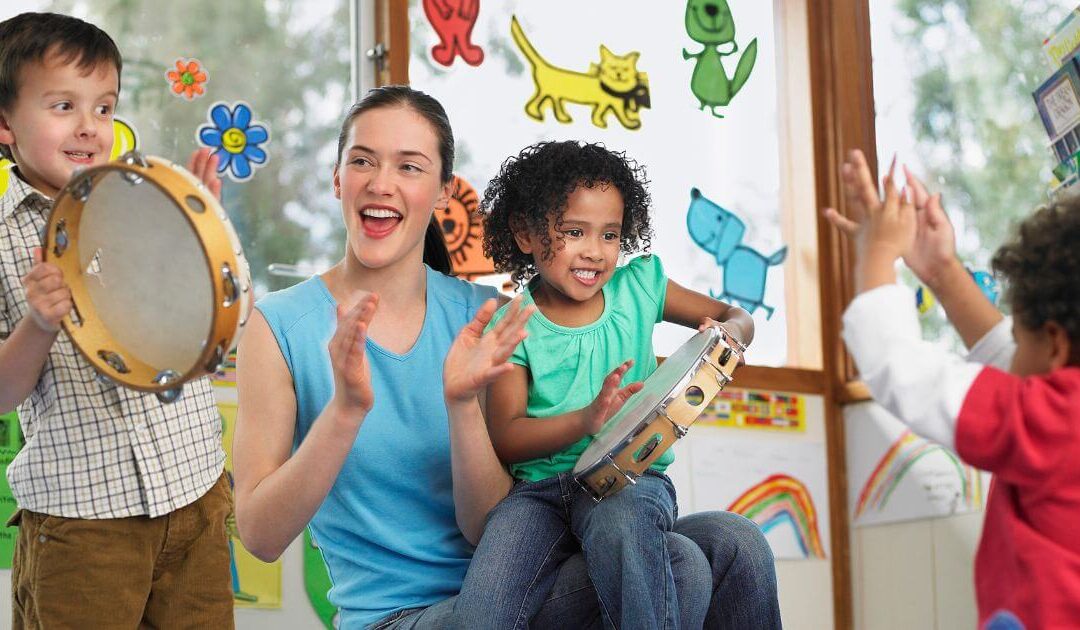Table of Contents
As parents, educators, and caregivers, we are continuously looking for methods to assist our children’s development and learning. And what better way to accomplish it than via the beauty of music? From the calming notes of a lullaby to the captivating beats of a favorite song, music has the ability to reach our hearts and minds in ways that words cannot. Join me on a melodious trip through the enchanting melodies of infant growth, exploring music’s influence on child development.
Harmony of Cognitive Growth
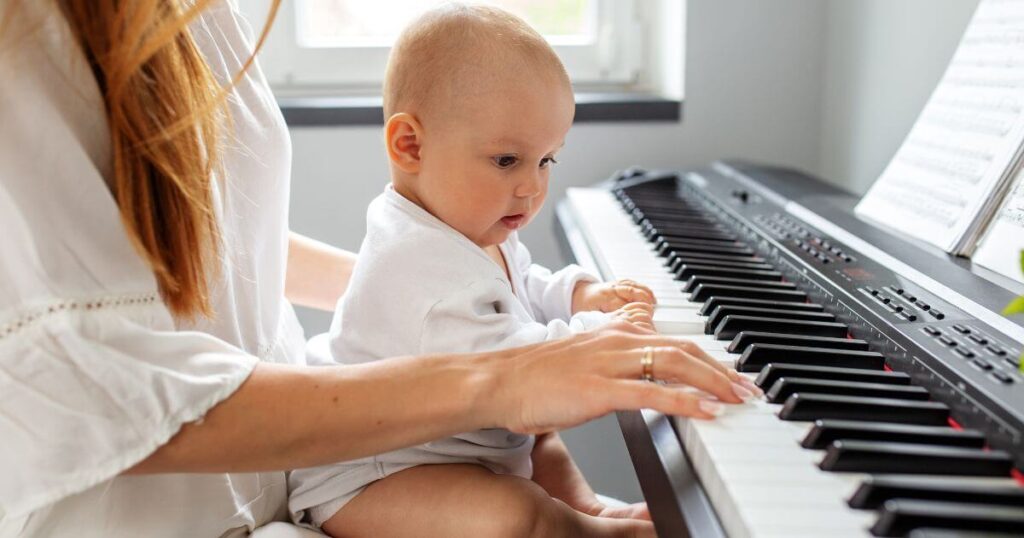
Let’s dive into the fascinating world of cognitive development, where music acts as an important catalyst for shaping young minds. Beyond the well-known Mozart Effect, which has received a lot of attention, music has a wide range of effects on cognitive development. According to research, early exposure to music improves children’s memory, linguistic skills, and spatial reasoning. For example, longitudinal studies have found that youngsters who participate in musical activities have better executive function skills than their non-musical classmates. This emphasizes the critical significance of music in cognitive development.
Furthermore, the complex relationship between music and cognition is seen in a variety of musical activities. Whether they’re learning to play an instrument, singing along to their favorite songs, or simply tapping out beats, children’s brains are continuously processing complicated auditory information. According to neuroimaging research, music engages many brain areas, including the auditory cortex, prefrontal cortex, and motor areas, demonstrating a comprehensive cognitive involvement that extends beyond auditory perception. As youngsters immerse themselves in musical experiences, they develop not only their musical abilities but also their cognitive capacities, setting the groundwork for future learning and academic success.
Also, music’s effects go beyond cognitive gains and include socio-emotional growth. Children develop crucial abilities for managing social interactions through collaborative musical activities such as ensemble playing or group singing. Participating in musical concerts or rehearsals helps youngsters develop resilience, discipline, and tenacity, all of which are necessary for success in many areas of life.
In essence, music serves as a catalyst for cognitive development, creating a rich and stimulating atmosphere in which children can explore, experiment, and discover. By introducing music into their everyday lives, parents and educators can use its transforming ability to help young brains reach their full potential, encouraging a harmonious balance of cognitive, emotional, and social development. So let us embrace the symphony of learning and let music guide the way in developing bright and inquiring minds.
Emotionally Tuned-In: Music’s Influence on Child Development
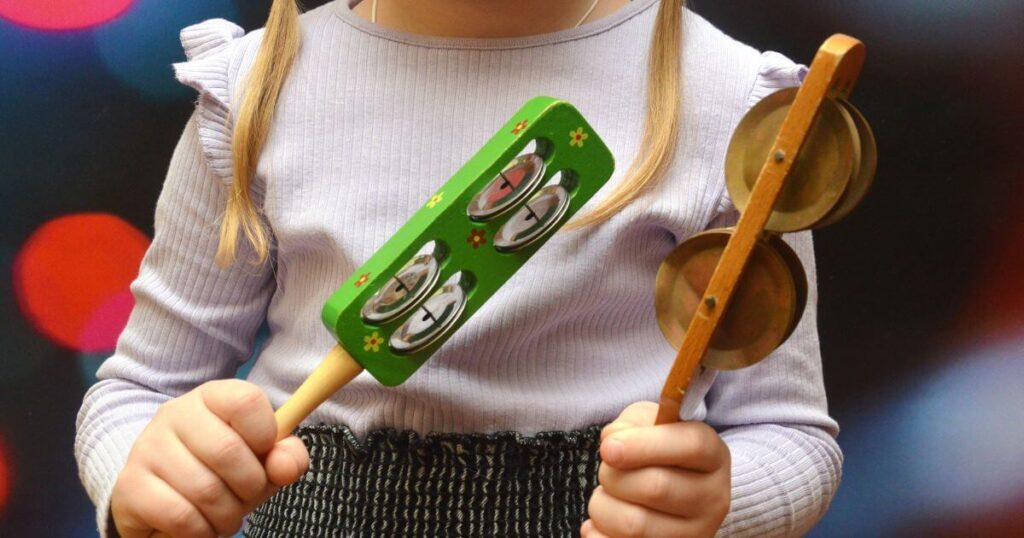
Now, let’s go deeper into music’s significant impact on emotional well-being. Beyond its enticing melodies, music has the ability to elicit a wide range of feelings, including joy, enthusiasm, melancholy, and nostalgia. For children who are still negotiating the complexities of their emotions, music is an effective instrument for emotional expression and management.
Research suggests that listening to music can have a profound effect on children’s emotional states. Studies have shown that upbeat and lively tunes can uplift moods and enhance feelings of happiness and relaxation, while soothing melodies can provide comfort and solace during times of distress. For example, researchers at a major children’s hospital did a trial in which they played soothing music for young patients undergoing medical operations. The findings demonstrated that music reduced anxiety and tension levels in the youngsters, making the event more bearable for them.
Moreover, music offers children a safe and constructive outlet for processing their emotions. Music allows people to express themselves creatively, whether they’re singing along to a favorite song, improvising on a musical instrument, or inventing their own songs. Music allows youngsters to express their emotions, explore their inner world, and make sense of the world around them. This emotional catharsis not only increases psychological well-being, but it also instills children with a sense of empowerment and resilience.
Furthermore, the social part of music enriches children’s emotional experiences. Children who participate in a choir, band, or ensemble learn to connect with others via shared musical experiences. They feel the thrill of collaboration, the satisfaction of making something beautiful together, and the support of a musical community. These connections not only provide children a sense of belonging, but they also offer important emotional support during difficult times.
In essence, music acts as a powerful emotional anchor for children, providing solace, expression, and connection in an often overwhelming world. By adding music into their daily lives, parents and educators can help children better navigate their emotions, building resilience, empathy, and emotional well-being. So let’s ramp up the emotional intelligence and allow music’s melodies lead us to greater emotional harmony.
Rhythm and Movement Magic
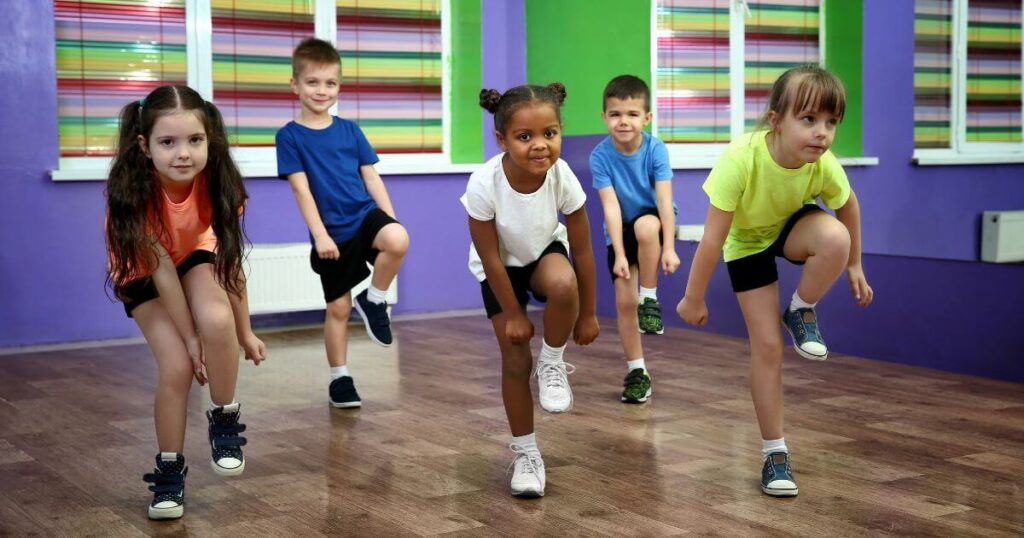
Prepare to go on a rhythmic trip full of movement and magic! Music is more than simply what we hear; it also affects how we feel and move. From the moment they are born, children are drawn to the natural rhythm of their surroundings, from the sound of their mother’s heartbeat to the soft sway of lullabies. As kids mature, music becomes an effective instrument for exploring their bodies, honing their motor abilities, and expressing themselves via movement.
One of the most captivating qualities of music is its power to elicit movement in toddlers. Children automatically respond to rhythmic patterns and melodies they hear, whether by clapping their hands, tapping their feet, or swaying to the beat. This natural link between music and movement paves the way for the development of gross motor abilities, coordination, and spatial awareness. Research has indicated that rhythmic activities such as dancing, drumming, or marching to music can benefit children’s physical development.
Furthermore, music offers children a unique opportunity for self-expression and creativity through movement. Whether they’re dancing freely to their favorite songs or following prescribed movement sequences, children may explore and experiment with their bodies in a safe and supportive setting. This creative discovery not only helps them develop physically, but it also boosts their confidence, self-esteem, and sense of identity.
Social Symphony
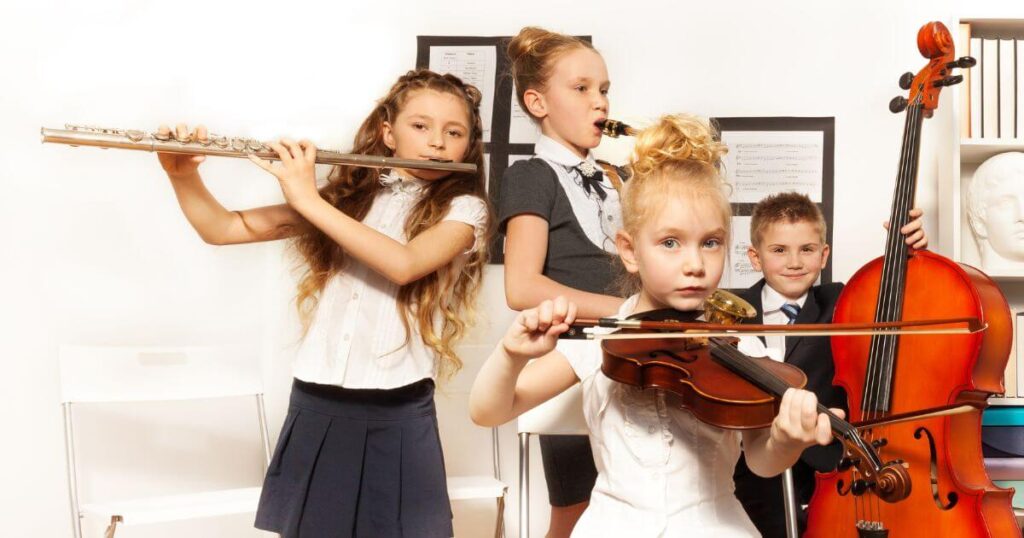
Now, let’s look at the fascinating world of social development via the lens of music. Music has a unique ability to unite people, encouraging collaboration, communication, and companionship. From singing in a choir to playing in a band, musical experiences provide youngsters with a diverse range of opportunities to connect with people and develop key social skills.
One of the most impressive characteristics of musical collaboration is its capacity to instill a sense of community and belonging in children. Children feel the delight of creating something beautiful together, whether they’re singing in a chorus or jamming with pals in a band. Through shared musical experiences, children learn to listen to one another, cooperate, and communicate effectively, setting the groundwork for deep and long-lasting friendships.
In addition, music allows children to express themselves and create emotional connections with others. Children learn about the power of music to transmit emotions, tell stories, and establish friendships with their peers, whether they perform on stage or simply sing along with friends. According to research, participating in musical activities fosters empathy, compassion, and understanding in youngsters, as well as a sense of mutual respect.
Furthermore, the collaborative nature of musical performance promotes teamwork and shared responsibility in children. Whether they’re learning a new piece of music or preparing for a performance, children learn to support one another, celebrate each other’s accomplishments, and work together to overcome problems. These collaborative projects not only help youngsters develop social skills, but they also foster resilience, perseverance, and a sense of communal accomplishment.
In essence, music is a potent stimulant for social development, providing youngsters with a rich and satisfying opportunity for connection, collaboration, and communication. By encouraging children to participate in musical activities, parents and educators can give them with great opportunities to develop critical social skills, form meaningful relationships, and foster a sense of community. So let us join a band, raise our voices in song, and celebrate music’s transformative power to bring hearts and minds together in a symphony of shared joy and harmony.
The End
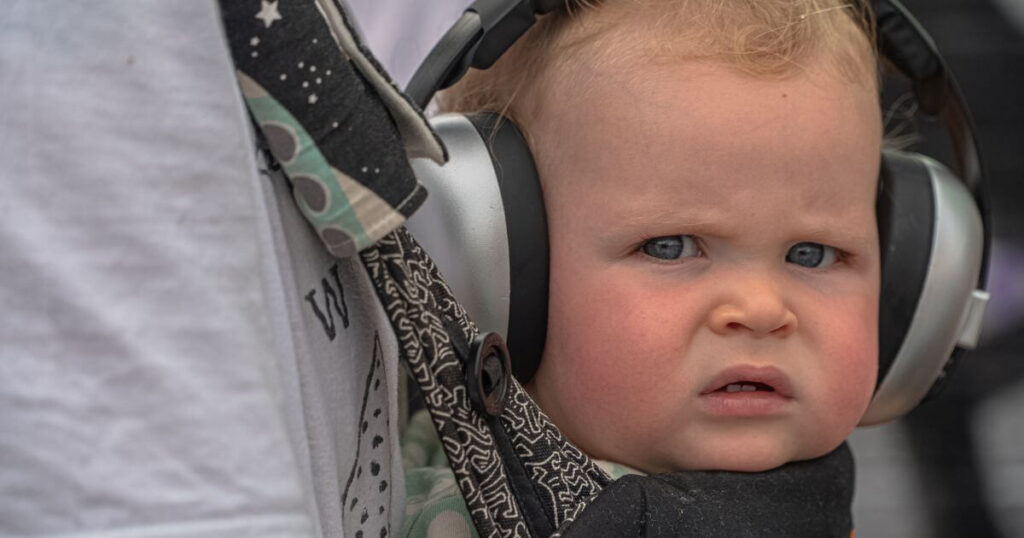
As we wrap off our musical voyage through the wonders of child development, one thing is abundantly clear: music is more than just a melody; it is a masterpiece of growth and learning. Let us celebrate music’s capacity to shape young minds while also promoting cognitive, emotional, physical, and social growth. After all, when it comes to the symphony of childhood, nothing beats music’s transformational power!

